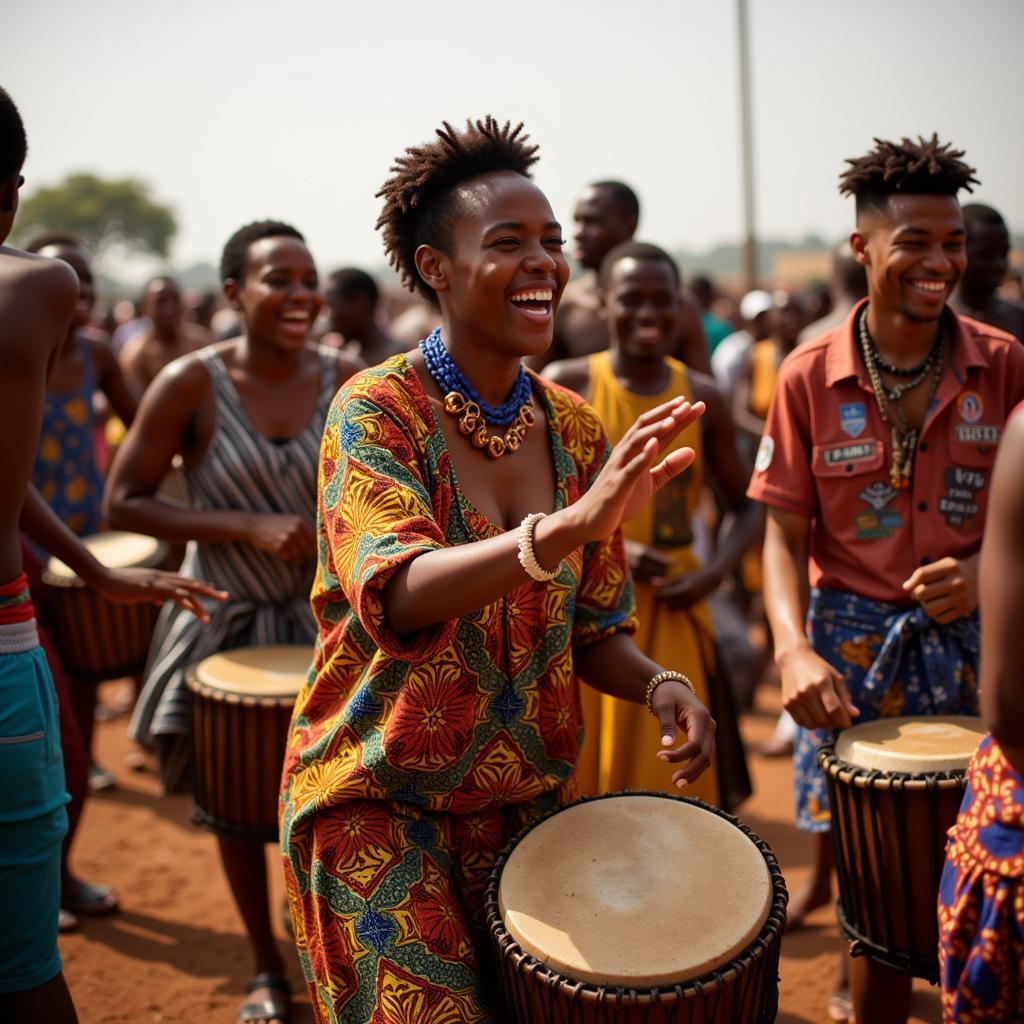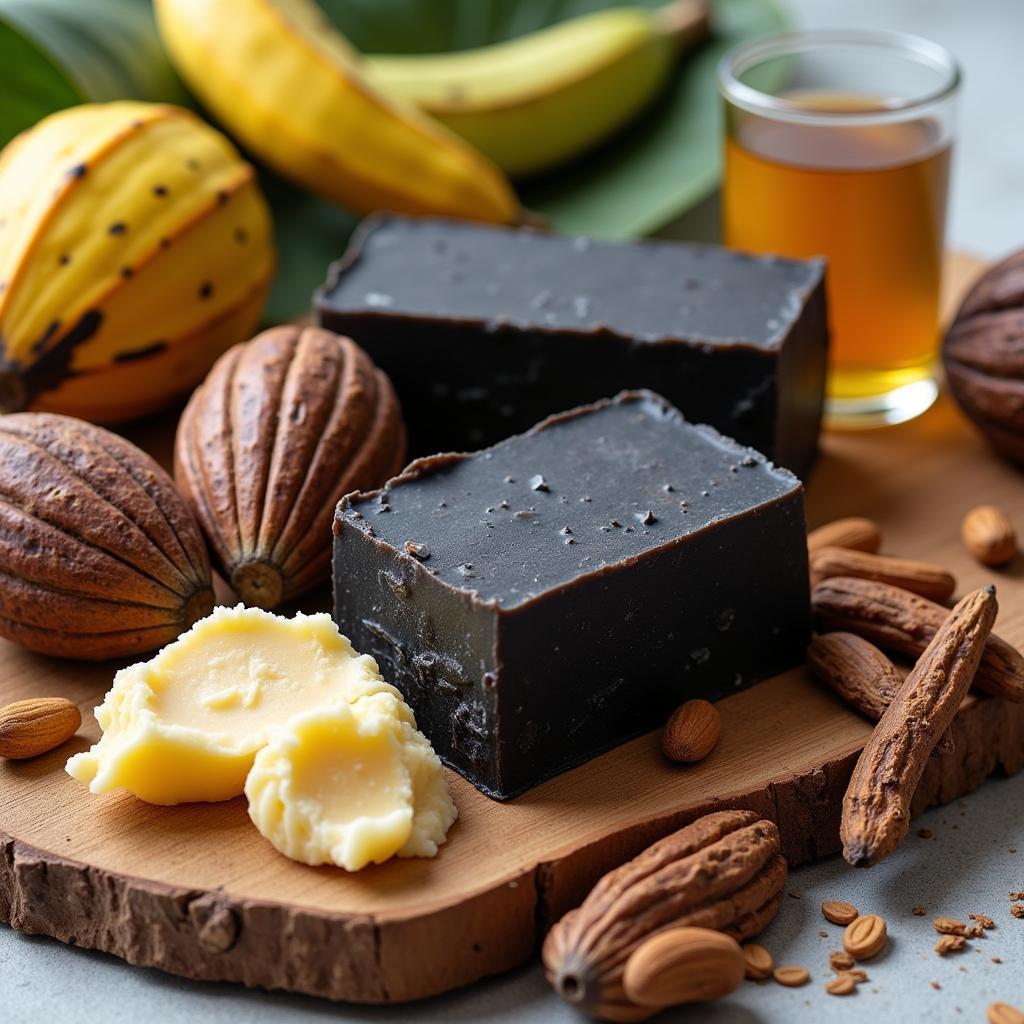African Guest in Kenya: A Warm and Welcoming Experience
Kenya is a vibrant and diverse country renowned for its stunning landscapes, rich wildlife, and warm, hospitable people. When it comes to welcoming visitors, the Kenyan people embody the true spirit of “Hakuna Matata,” meaning “no worries.” This welcoming attitude is evident in the way they treat their guests, offering a unique blend of tradition and modernity that makes visiting Kenya a truly memorable experience.
The Kenyan Hospitality: A Cultural Legacy
Kenyan hospitality is deeply rooted in their cultural traditions. For centuries, communities have emphasized the importance of sharing, generosity, and treating guests with respect. This tradition is still deeply ingrained in the Kenyan psyche today.
The “Jambo” Greeting: A Symbol of Welcome
The warmth of Kenyan hospitality is immediately evident in the “Jambo” greeting, which means “hello” in Swahili. This simple word is often accompanied by a broad smile and a warm handshake, setting the tone for a welcoming and friendly interaction.
The “Harambee” Spirit: Working Together for the Guest
The “Harambee” spirit, meaning “let’s pull together,” also plays a significant role in Kenyan hospitality. It reflects the communal spirit of working together, not just within families but also with their guests. When a visitor arrives, the entire community may pitch in to ensure they feel comfortable and well taken care of.
The Kenyan Home: A Place of Shared Joy
Kenyan homes are often open and welcoming, and guests are treated like family members. The home is seen as a place where everyone comes together to share meals, laughter, and stories.
Sharing Meals: A Symbol of Connection
Food is a crucial element of Kenyan hospitality. Guests are always offered a meal, whether it’s a simple cup of tea or a traditional feast. Sharing food is a way of showing respect and demonstrating the bond between host and guest.
The Kenyan Feast: A Celebration of Flavors
Kenyan cuisine is a rich tapestry of flavors, influenced by diverse cultures and traditions. The famous “Nyama Choma,” grilled meat, is a popular dish enjoyed by locals and visitors alike. Other traditional delicacies include Ugali (a maize porridge), Sukuma Wiki (collard greens), and Githeri (a mix of beans and maize).
“The beauty of Kenyan hospitality lies in its genuine nature. It’s not just about the rituals but about the genuine warmth and kindness that shines through in every interaction,” explains Sarah Maina, a Kenyan cultural anthropologist.
Experiencing Kenyan Hospitality: Beyond the Home
The warmth and hospitality of the Kenyan people extends beyond their homes. Whether you’re exploring the bustling markets in Nairobi or the serene landscapes of the Maasai Mara, you’ll encounter friendly faces eager to share their culture and their land with you.
The Local Guides: Sharing Stories and Knowledge
Local guides play a vital role in shaping the guest experience. They not only share their knowledge about the country’s history, culture, and wildlife, but also offer a glimpse into the everyday lives of Kenyans, making the journey even more enriching.
The Safari Experience: A Celebration of Nature and Culture
The safari experience in Kenya is not just about seeing magnificent wildlife; it’s also about experiencing the cultural richness of the Maasai people, who have lived harmoniously with the land for generations. They are renowned for their vibrant traditions, including their distinct clothing, intricate beadwork, and unique rituals.
“The Maasai people have a deep connection to their land and a strong sense of community. They embody the spirit of “Harambee” in their daily lives, sharing their knowledge and traditions with visitors who come to experience their world,” says John Ole Ntimama, a renowned Maasai elder.
Conclusion
The Kenyan people have a profound understanding of hospitality, rooted in their cultural heritage and values. Their warm welcome, generosity, and spirit of sharing create a unique and unforgettable experience for visitors. From the bustling markets of Nairobi to the serene plains of the Maasai Mara, every interaction embodies the true essence of “Hakuna Matata,” offering a glimpse into the soul of Kenya.
FAQ
- What is the best time to visit Kenya for a guest experience? The best time to visit Kenya is during the dry season, which runs from June to October. During this time, the weather is sunny and clear, making it ideal for outdoor activities like safaris.
- What is the typical attire for guests in Kenya? While there is no strict dress code, it’s generally advisable to dress modestly, especially when visiting religious sites or rural communities.
- What is the etiquette for tipping in Kenya? Tipping is customary in Kenya, and it’s a way of showing appreciation for good service. A standard tip is around 10% of the bill for restaurant service and 5-10% for safari guides.
- Are there any specific cultural practices guests should be aware of? It’s important to be respectful of Kenyan traditions and customs. For example, it’s considered polite to greet people with a handshake, and to avoid public displays of affection.
- What are some common souvenirs to take home from Kenya? Some popular souvenirs include Maasai beadwork, traditional Kenyan carvings, and local crafts.


